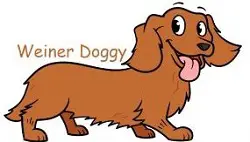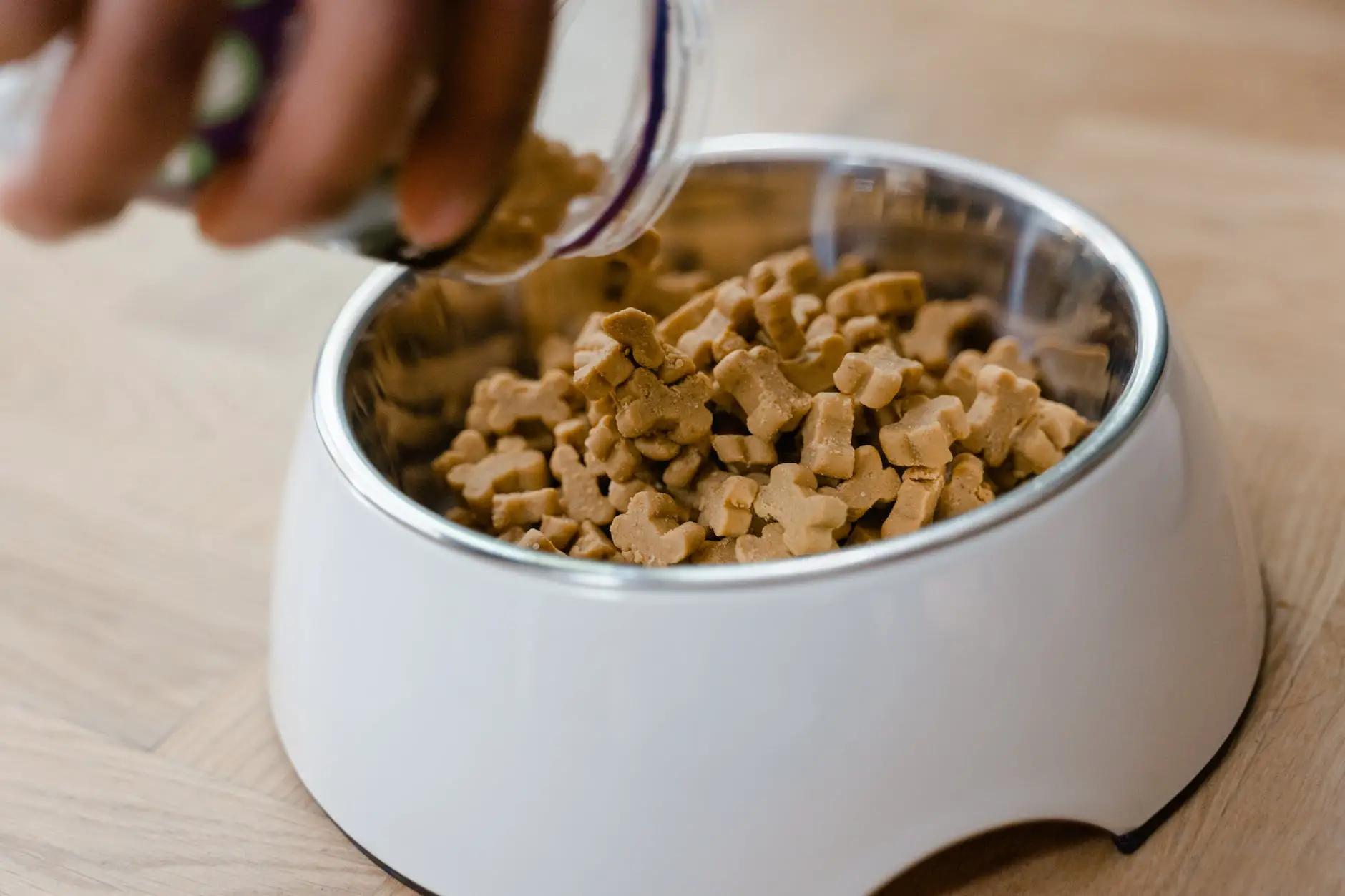How much food should a dachshund eat a day? The right dachshund daily feed guide can vary based on the size, type and health condition of your dog.
Several factors including the dog’s age, weight, activity level and overall health come into play when it comes to the right amount of food.
As a general guideline, the information below can be used. You can also use our dachshund feeding calculator to work out a daily amount.
Puppies
Dachshund puppies typically need more food than adult dogs because they are growing rapidly. They should be fed a high-quality puppy food three to four times a day.
The exact amount will depend on the puppy’s age and size, but it’s usually around 1/2 to 1-1/2 cups of food per day, divided into multiple meals.
Adults
An average adult Dachshund that is moderately active typically requires about 1/2 to 1-1/4 cups of dry food per day. It’s recommended to divide this into two meals.
Seniors
Older dogs may require slightly less food than their younger, more active counterparts. This is because their metabolism slows down with age.
Typically, a senior Dachshund might need anywhere from 1/2 to 1 cup of food per day, depending on their health and activity level.
These are general guidelines and the exact amount can vary. It’s important to monitor your Dachshund’s weight and adjust their food intake as needed to maintain a healthy weight.
Overfeeding can lead to obesity, which is a common health issue in Dachshunds due to their long spine and short legs.
How Much Food Should A Dachshund Eat A Day?
| Dog’s Weight | Activity Level | Daily Food Intake (in grams) |
|---|---|---|
| 4-5 kg | Low Activity | 90-110 g |
| 4-5 kg | Moderate Activity | 110-140 g |
| 4-5 kg | High Activity | 140-170 g |
| 5-6 kg | Low Activity | 110-130 g |
| 5-6 kg | Moderate Activity | 130-160 g |
| 5-6 kg | High Activity | 160-190 g |
| 6-7 kg | Low Activity | 130-150 g |
| 6-7 kg | Moderate Activity | 150-180 g |
| 6-7 kg | High Activity | 180-210 g |
- Low Activity: Dogs that are older, less active, or prone to weight gain.
- Moderate Activity: Dogs that have a typical level of activity for the breed.
- High Activity: Very active dogs, those who participate in dog sports, or have higher energy levels.
Keep in mind that these are approximate values and can vary based on the specific brand and type of food you’re using, as well as your dog’s individual needs.
Also, remember to consider treats and additional snacks in your dog’s daily food intake to avoid overfeeding.
Dachshund Feeding Tips
Feeding your Dachshund properly is crucial for maintaining their health and well-being. Here are some important tips to keep in mind when feeding your Dachshund:
Measure Meals Carefully
Use a measuring cup to serve the correct portion size. Overfeeding can lead to obesity, which is particularly harmful for Dachshunds due to their long spines and short legs.
Consistent Feeding Schedule
Establish a regular feeding routine. Feeding your Dachshund at the same times every day helps regulate their digestion and can prevent overeating.
Suitable Diet
Choose a high-quality dog food appropriate for your Dachshund’s age, size, and activity level. Puppies, adults, and seniors have different nutritional needs.
For instance, puppies need more calories and nutrients for growth, while seniors might require a diet lower in calories but rich in fiber.
Monitor Weight and Health
Regularly check your Dachshund’s weight and overall condition. Adjust food portions and diet as needed. If you notice any sudden weight gain or loss, consult your veterinarian.
Avoid Human Food
Many human foods are unhealthy or even toxic for dogs. Stick to dog-specific foods and treats. If you’re unsure about a particular food, check with your vet.
Limit Treats
Treats should only make up a small portion of your Dachshund’s diet. Overdoing it with treats can lead to weight gain.
Stay Hydrated
Always provide access to fresh, clean water.
Slow Feeding Bowls
If your Dachshund eats too quickly, consider using a slow feeder bowl to reduce the risk of choking and improve digestion.
Exercise
Regular exercise is important to maintain a healthy weight. It also stimulates appetite and aids digestion.
Consult a Vet
If you have any concerns about your Dachshund’s diet or health, or if you’re considering changing their diet, consult your veterinarian first.
Remember, each Dachshund is unique, and their dietary needs can vary. It’s always best to tailor these guidelines to suit your individual dog’s needs and lifestyle.
Best Foods For Your Dachshund
Choosing the best food for your Dachshund is essential to ensure they stay healthy and happy. When selecting a dog food, consider the following factors:
High-Quality Protein Source
Look for foods where the main ingredient is a high-quality protein, like chicken, turkey, lamb, or fish. Dachshunds need a good amount of protein to maintain their muscle tone and overall health.
Balanced Omega Fatty Acids
Foods containing omega-3 and omega-6 fatty acids are beneficial for your Dachshund’s coat and skin health. These can be found in ingredients like fish oil, flaxseed, and certain meats.
Appropriate Fat Content
While fat is an important part of a dog’s diet, it’s crucial for Dachshunds to maintain a healthy weight to avoid back problems. Look for foods with a balanced fat content, ideally from high-quality sources like chicken fat or fish oil.
No Fillers or Artificial Additives
Avoid foods with unnecessary fillers (like corn, wheat, and soy) and artificial preservatives or colors, as these can be harmful or lead to allergies.
Tailored for Size and Age
Choose a food that’s specifically formulated for small breeds, as these will have the right nutrient balance for a Dachshund. Also, make sure the food is age-appropriate – puppies, adults, and seniors have different nutritional needs.
Fiber for Digestive Health
A good amount of fiber in their diet helps maintain your Dachshund’s digestive health. Ingredients like sweet potatoes, peas, and pumpkin can be good sources of fiber.
Calcium and Phosphorus
These minerals are important for bone health, which is especially crucial for Dachshunds given their risk of spinal issues.
Vitamins and Minerals
A well-balanced diet should include essential vitamins and minerals to support overall health.
Specific Needs
If your Dachshund has specific health issues like allergies, joint problems, or sensitivities, you might need to choose a diet that caters to these needs.
Daily Feeding Guide for Dachshund vs Miniature Dachshund
Feeding a Dachshund and a Miniature Dachshund requires understanding their individual nutritional needs, which can differ due to their size.
Feeding Guide: Dachshund vs Miniature Dachshund
Dachshund (Standard)
- Weight Range: Typically 16-32 pounds (7.3-14.5 kg)
- Activity Level: Regular exercise, moderate energy levels
- Health Considerations: Prone to obesity, spinal issues
Miniature Dachshund
- Weight Range: Typically under 11 pounds (under 5 kg)
- Activity Level: Energetic, but less exercise needed compared to the standard size
- Health Considerations: Similar to standard, but with a smaller stomach capacity
Dachshund Daily Feed Guide
| Dog Type | Weight | Low Activity | Moderate Activity | High Activity |
|---|---|---|---|---|
| Dachshund (Standard) | 7-10 kg | 100-140 g | 140-180 g | 180-220 g |
| 10-14.5 kg | 140-180 g | 180-230 g | 230-280 g | |
| Miniature Dachshund | Up to 4 kg | 40-60 g | 60-80 g | 80-100 g |
| 4-5 kg | 60-75 g | 75-95 g | 95-115 g |
- Low Activity: Less active, older dogs, or those prone to weight gain
- Moderate Activity: Average activity level for the breed
- High Activity: Very active dogs, or those engaged in regular training or dog sports
Additional Tips:
- Meal Frequency: Puppies should eat 3-4 times a day, while adults do well with 2 meals a day.
- Type of Food: High-quality dog food suitable for their life stage (puppy, adult, senior).
- Adjustments: Monitor weight and body condition, adjust food amounts as needed.
- Treats and Extras: Should not exceed 10% of their daily calorie intake.
- Fresh Water: Always available.
- Consult a Vet: Especially for diet changes or if your Dachshund has special health needs.
Remember, this table provides general guidelines and the exact needs can vary. It’s always important to monitor your dog’s health and consult with a veterinarian for personalized advice.

